
Securing your data is a top priority, and sometimes you need to protect more than just a single file or folder. Locking an entire hard drive is a powerful way to safeguard a vast amount of information from unauthorized access. This comprehensive overview will show you how to easily password-protect any hard drive in Windows 10/11 using Folder Lock, a robust security software developed by Newsoftwares.net.
Why You Should Lock a Hard Drive
Locking a hard drive provides a comprehensive layer of security for all the data it contains. This is especially important for:
- Shared Computers: Preventing other users from accessing your personal data.
- Confidential Projects: Securing all files related to a specific project in a single action.
- Physical Theft: Making your data inaccessible and unreadable if your PC or laptop is stolen.
Built-in vs. Third-Party Solutions
When it comes to locking a hard drive, you have a few options.
Built-in Windows Tools (BitLocker)
Windows includes a feature called BitLocker, which can encrypt an entire drive.
- The Upside: It's built into the operating system and is a solid encryption tool.
- The Downside: The setup can be a complex and time-consuming process that often requires a Microsoft account.
Dedicated Third-Party Software (Folder Lock)
A specialized application like Folder Lock is designed to simplify the process of locking an entire drive.
- The Upside: It provides a simple, intuitive user interface for both locking and unlocking drives. It not only encrypts the drive but also makes it completely invisible and inaccessible in Windows, providing an extra layer of security.
- The Downside: It requires a one-time download and installation.
For ease of use and superior concealment, a dedicated third-party tool is the best option.
The Folder Lock Method: How to Lock Your Drive Windows 10 / 11
Pre-Requisite
You need to install the Folder Lock application. If you have not installed it yet, you can read How to Download, Install, and Get Started with Folder Lock.
Follow these easy steps to hide and protect your Hard Drives
Step 1: Open Folder Lock
- Launch the Folder Lock application on your computer and log in with your email and password.
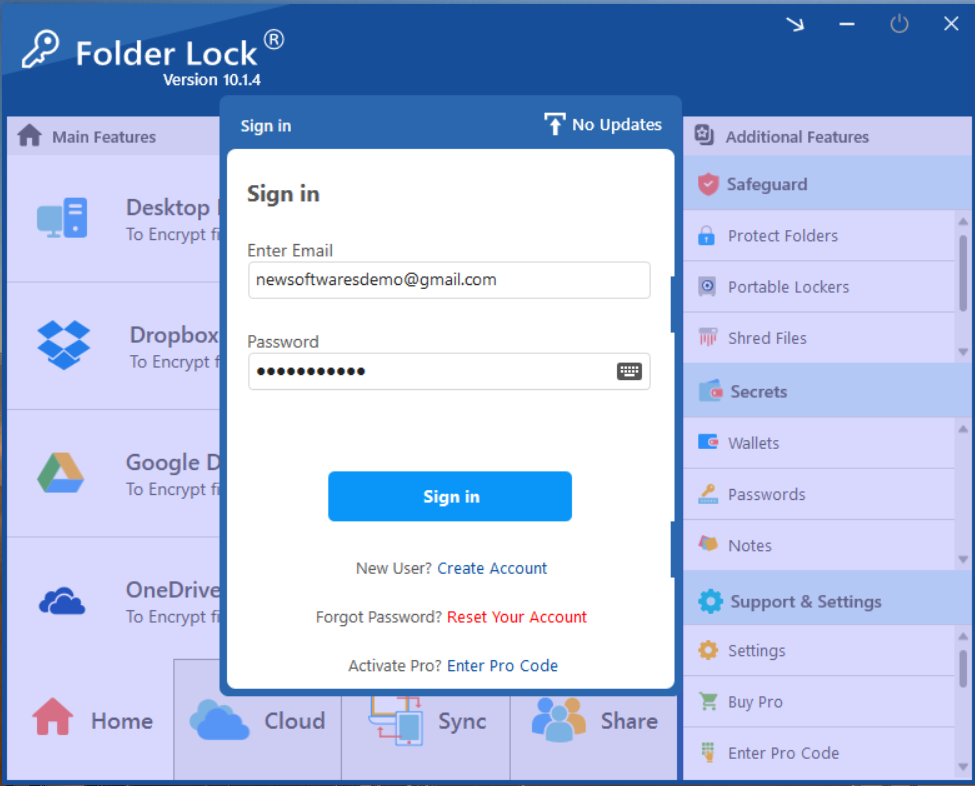
Step 2: Select "Protect Folders Under Safeguard Tab"
- Within the Safeguard section, click on the "Protect Folders" tab. This will open the interface for hiding your items.
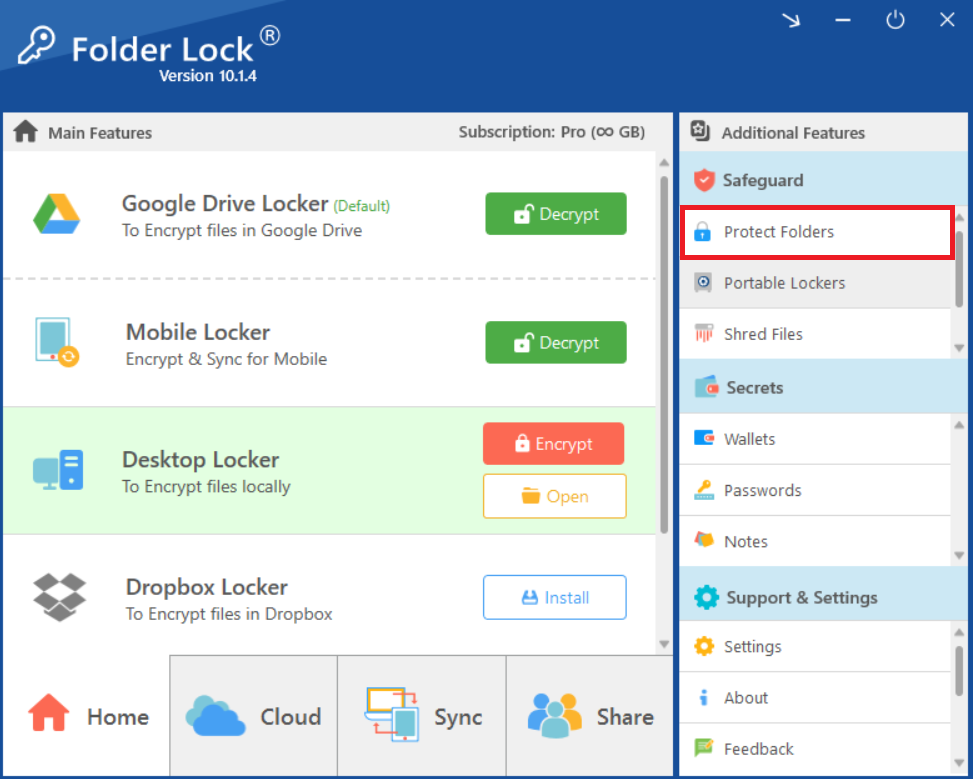
Step 3: Add Items to Lock
- In the "Protect Folders" view, click on the "Add Items to Lock" button at the top of the screen.
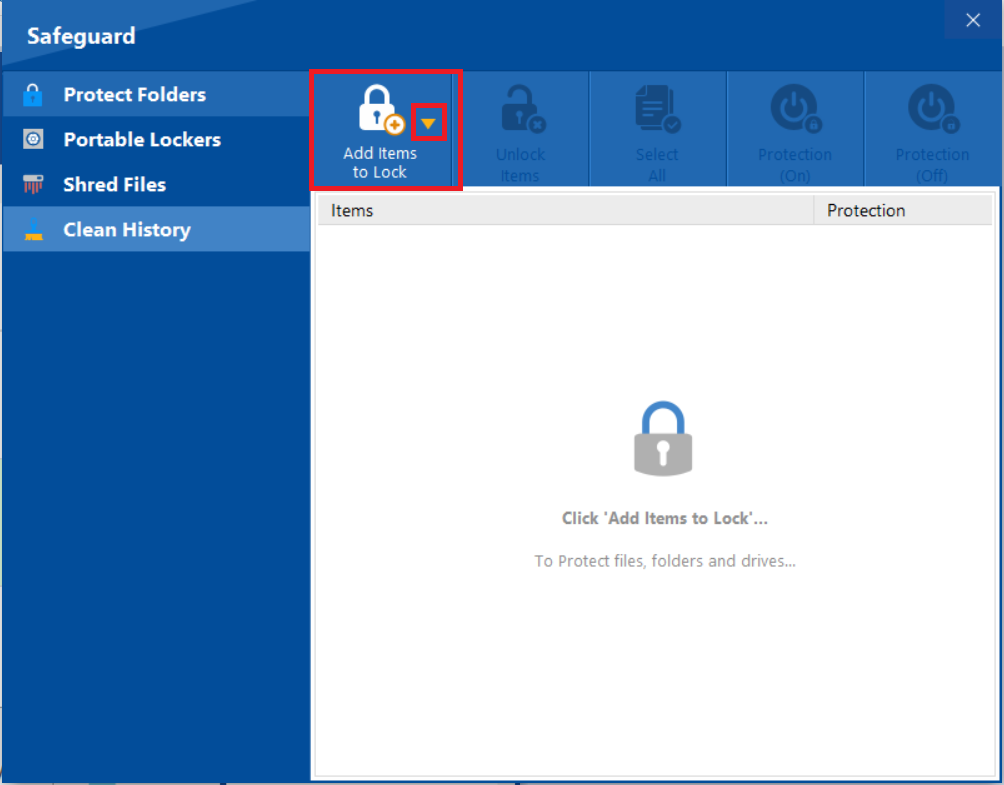
- A dropdown menu will appear. You can choose to add individual "File(s)," "Folder(s)," or entire "Drive(s)" for protection.
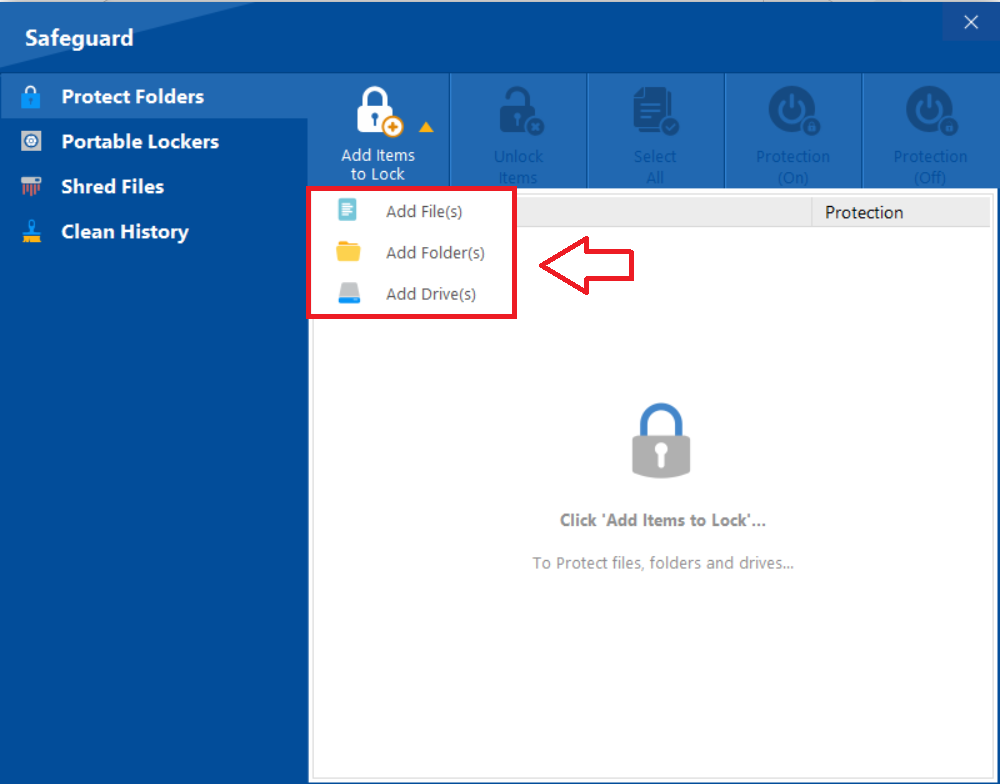
- Select "Add Drive(s)" from the list.
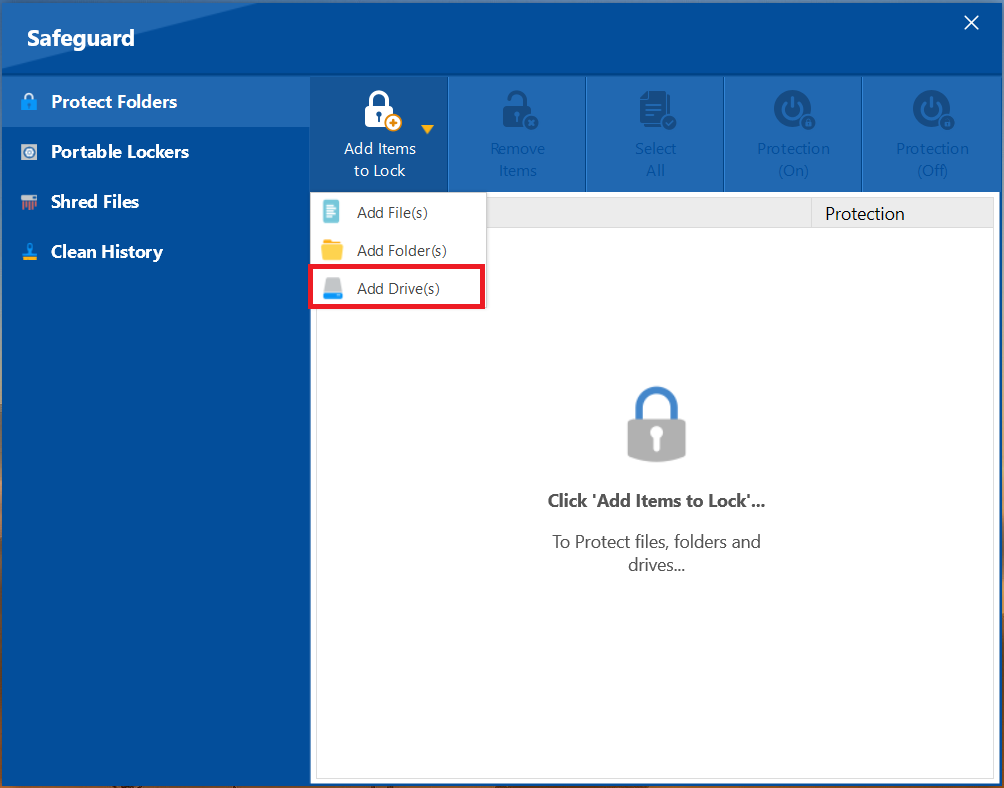
Step 4: Select Your Drive
- A window will pop up showing a list of all your hard drives. Select the hard drive you wish to protect by clicking on it.
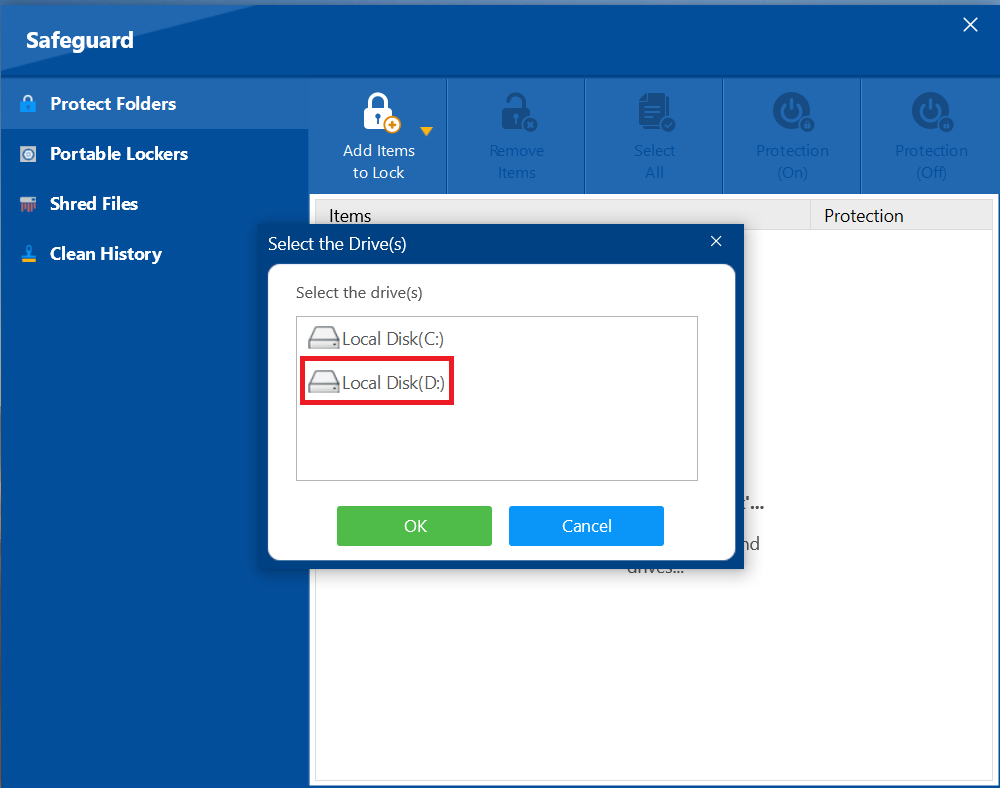
Note: Your drive containing the operating system (usually the C:\ drive) cannot be selected for protection.
- Click Ok to start protecting your selected drives.
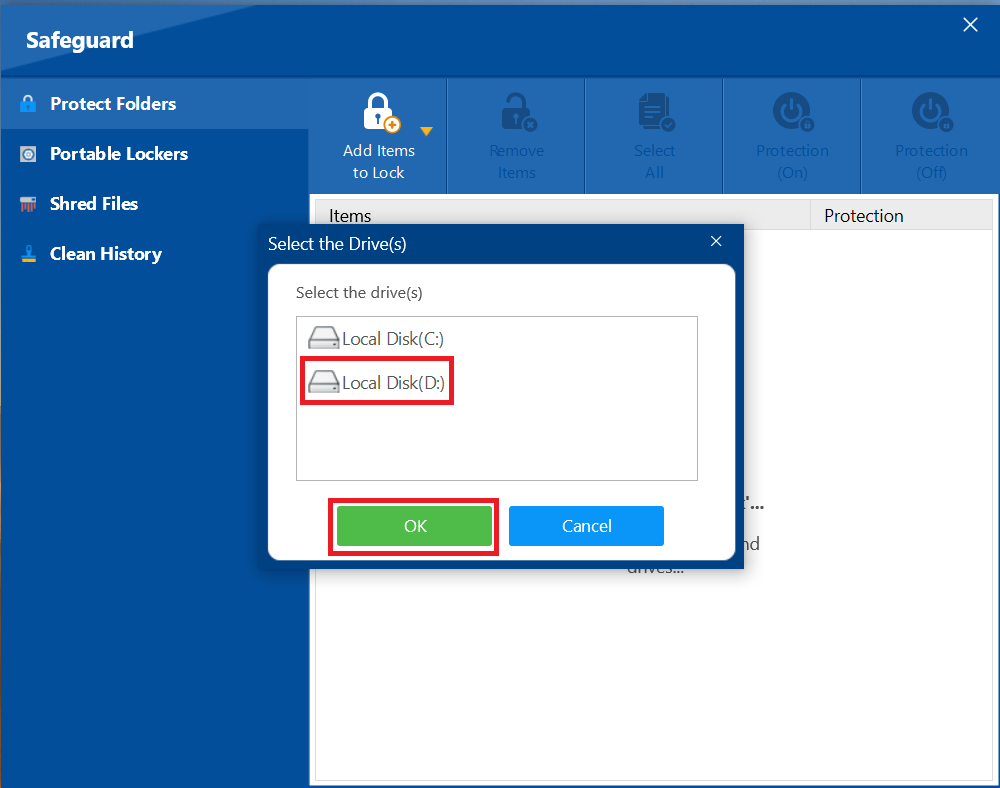
Step 5: Verify the Drive is Protected
- Once you have added the drive, it will appear in the "Protect Folders" list.
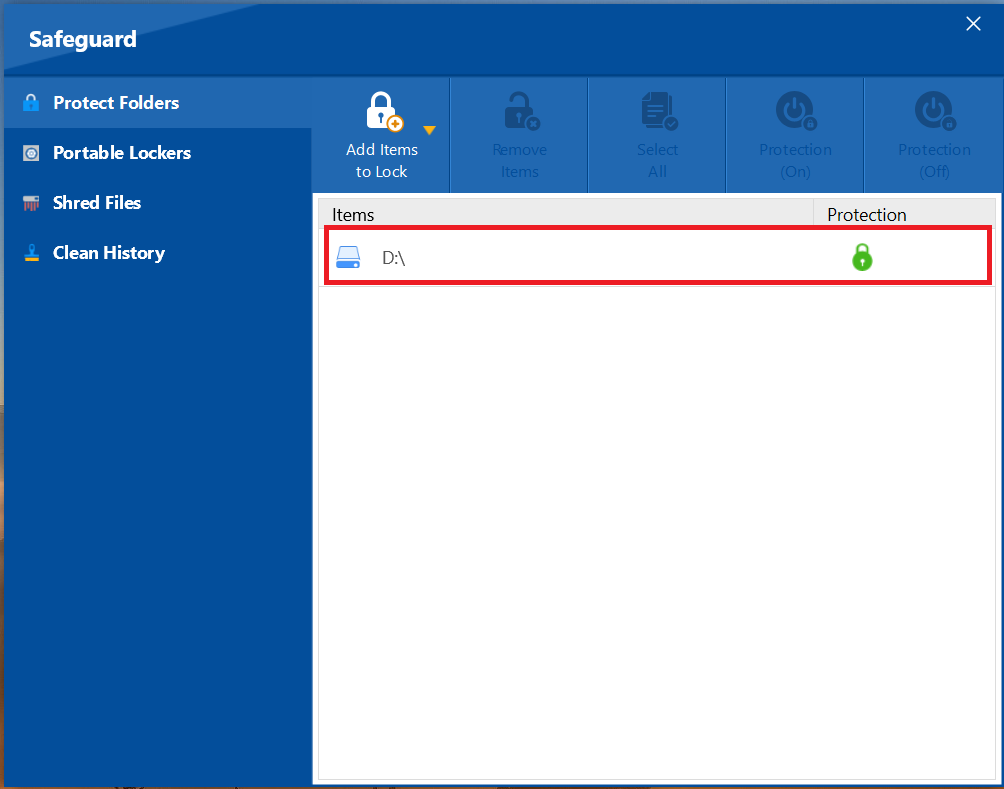
- The green lock icon indicates that the drive has been successfully protected.
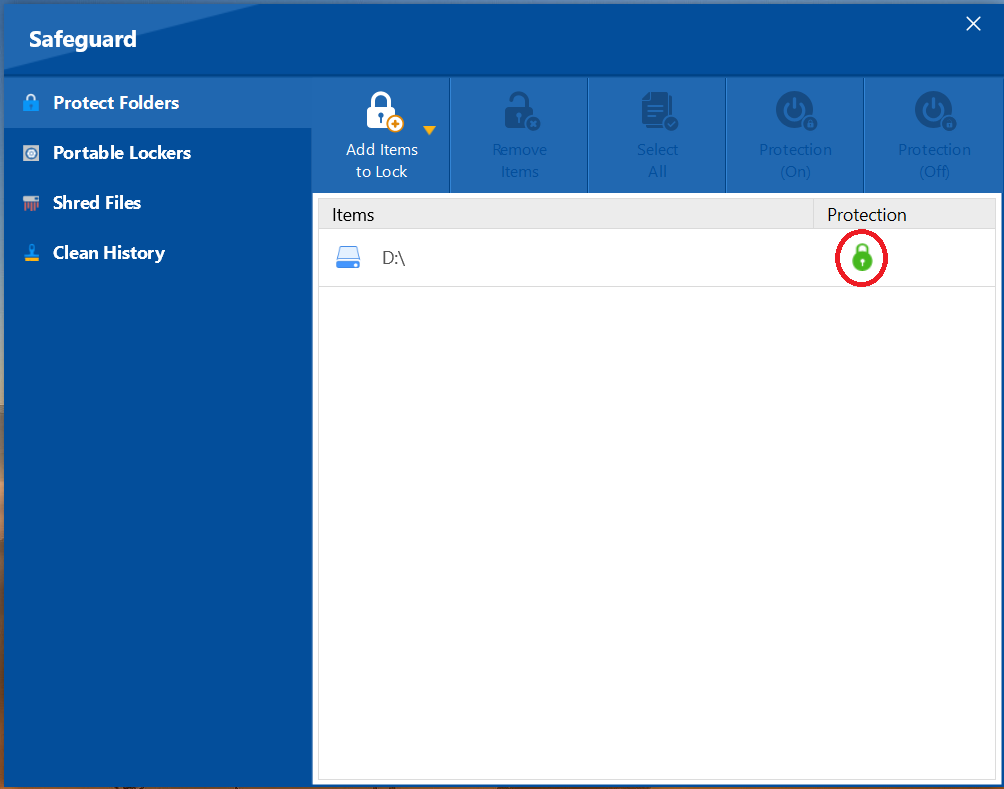
Step 6: Check Windows File Explorer
-
Your protected hard drive will now be hidden from Windows File Explorer, making its contents completely inaccessible without first opening Folder Lock and unprotecting it.

With the ability to secure an entire hard drive, you have implemented a robust and comprehensive defense for a vast amount of data. This powerful feature ensures that your sensitive files and folders are not only hidden but also protected by an invisible layer of security. By following these straightforward steps, you can gain the confidence and peace of mind that all your information is safe from unauthorized access.

